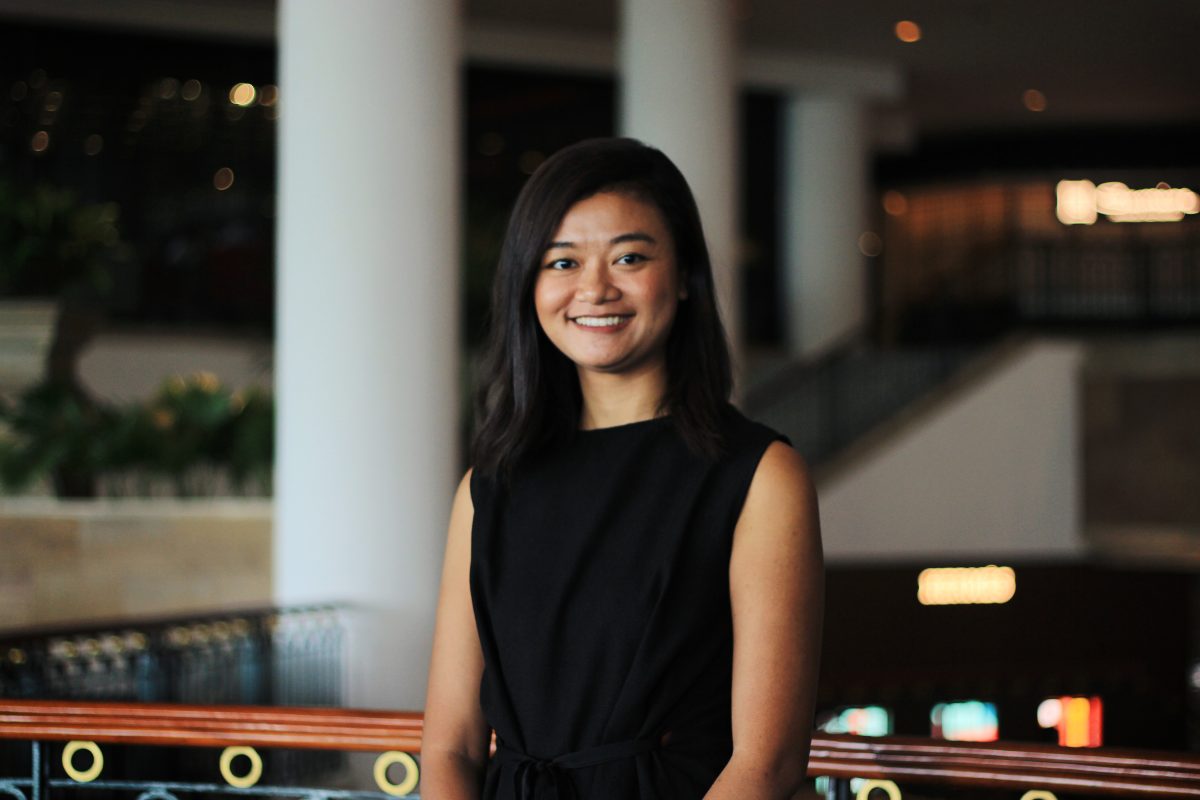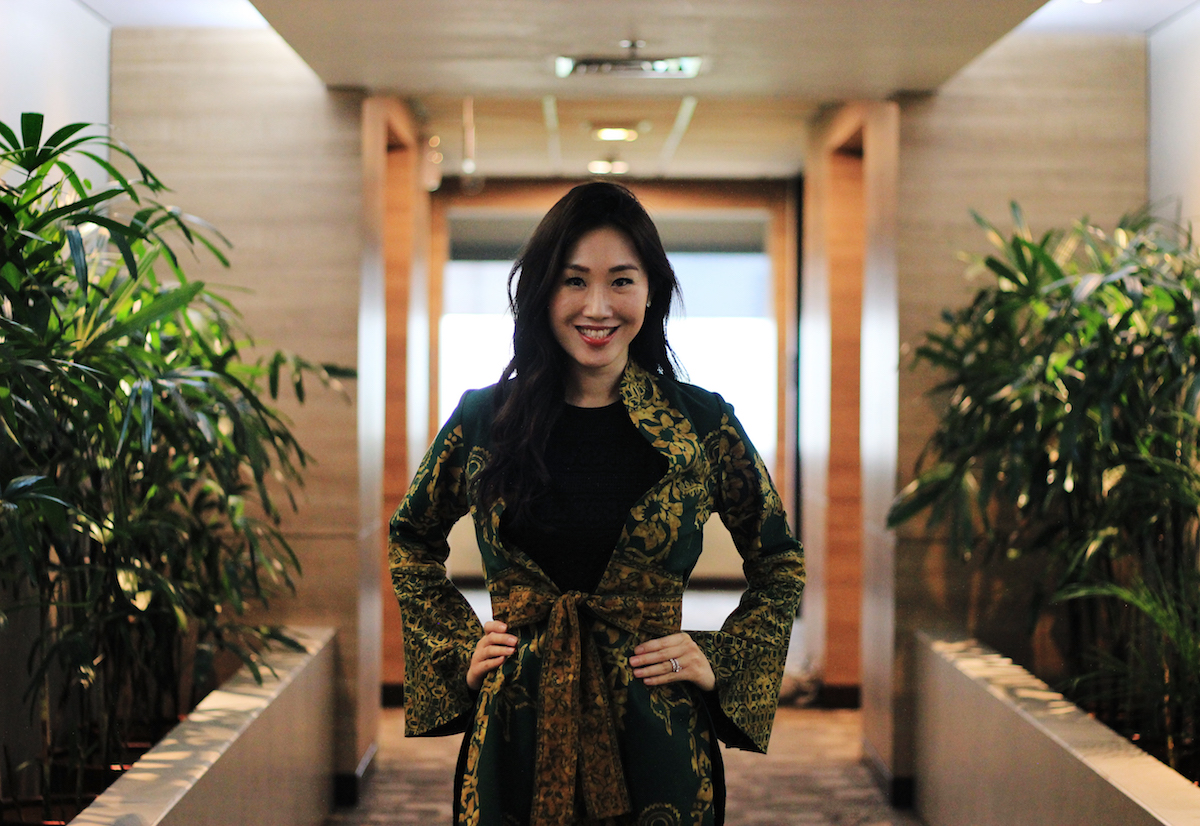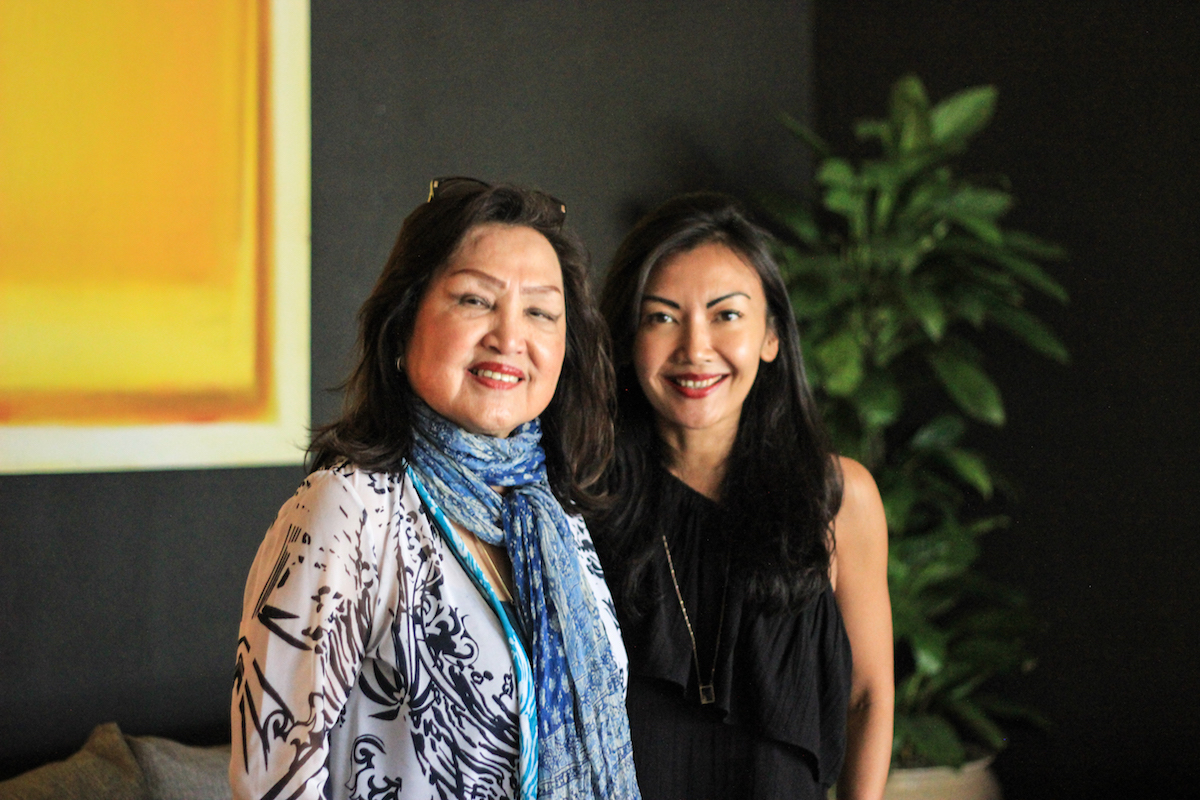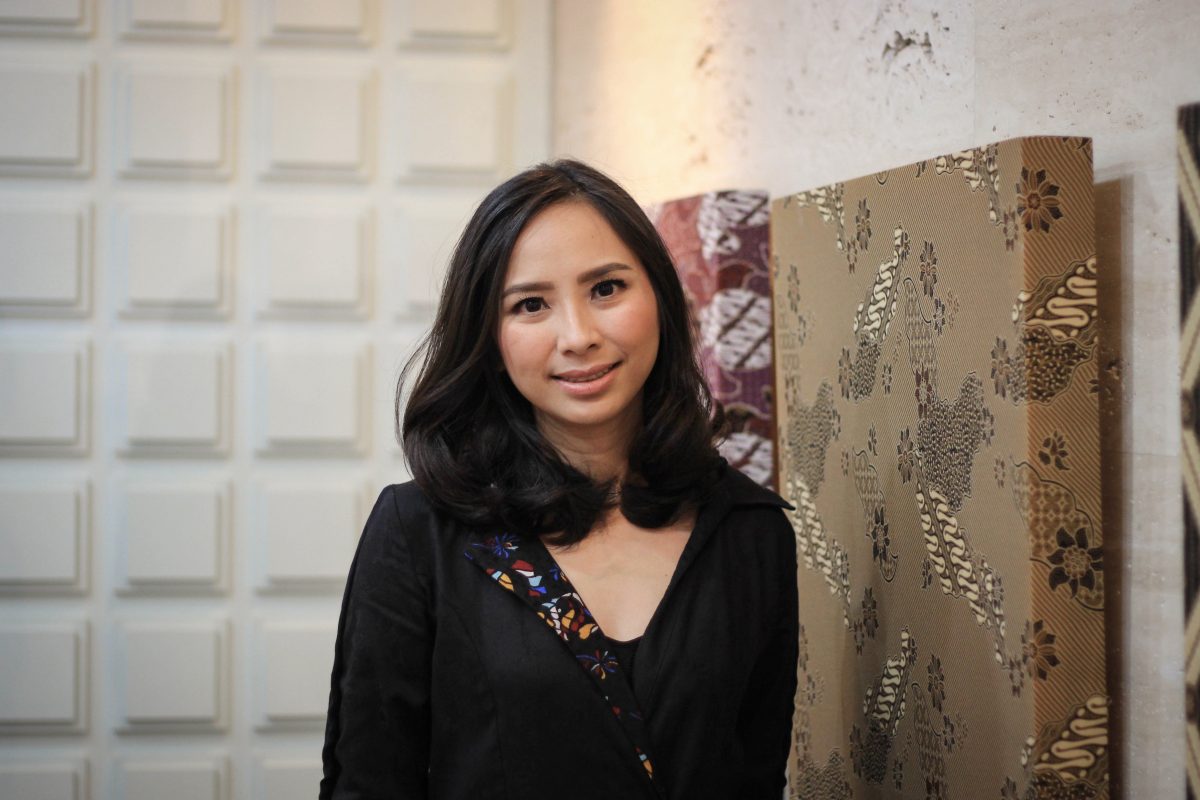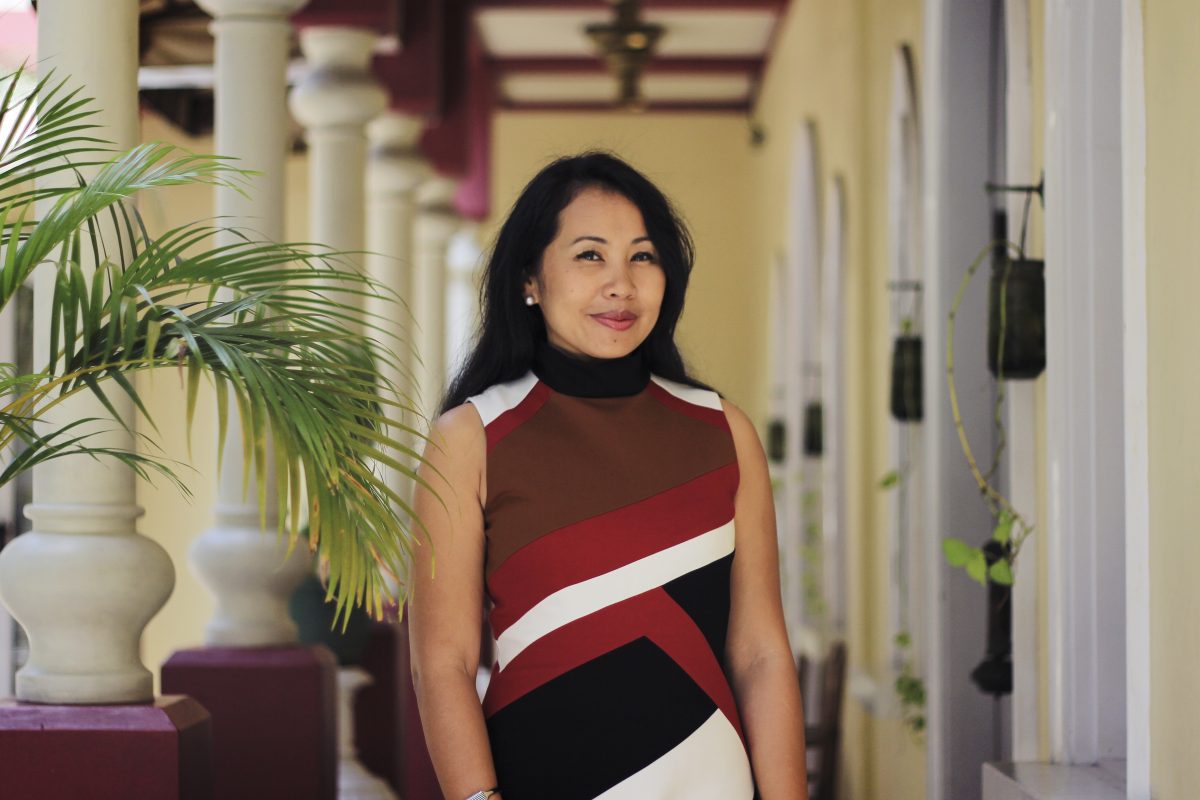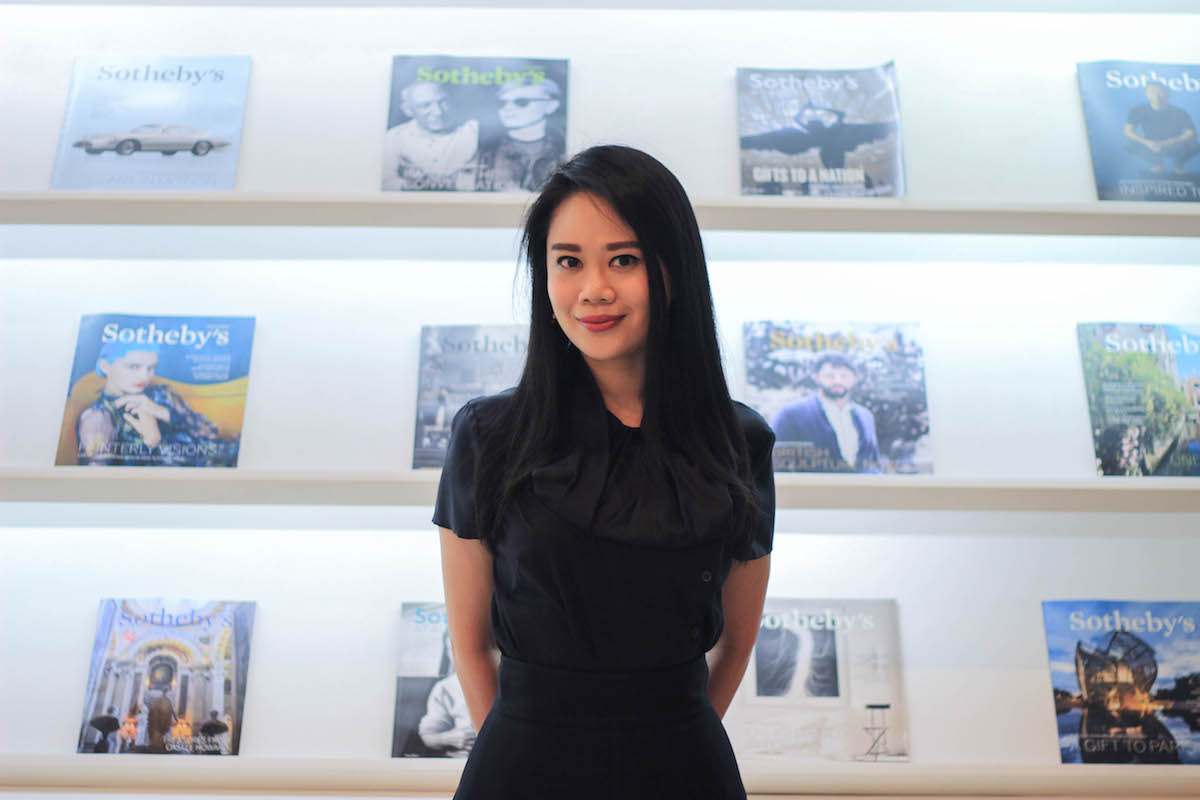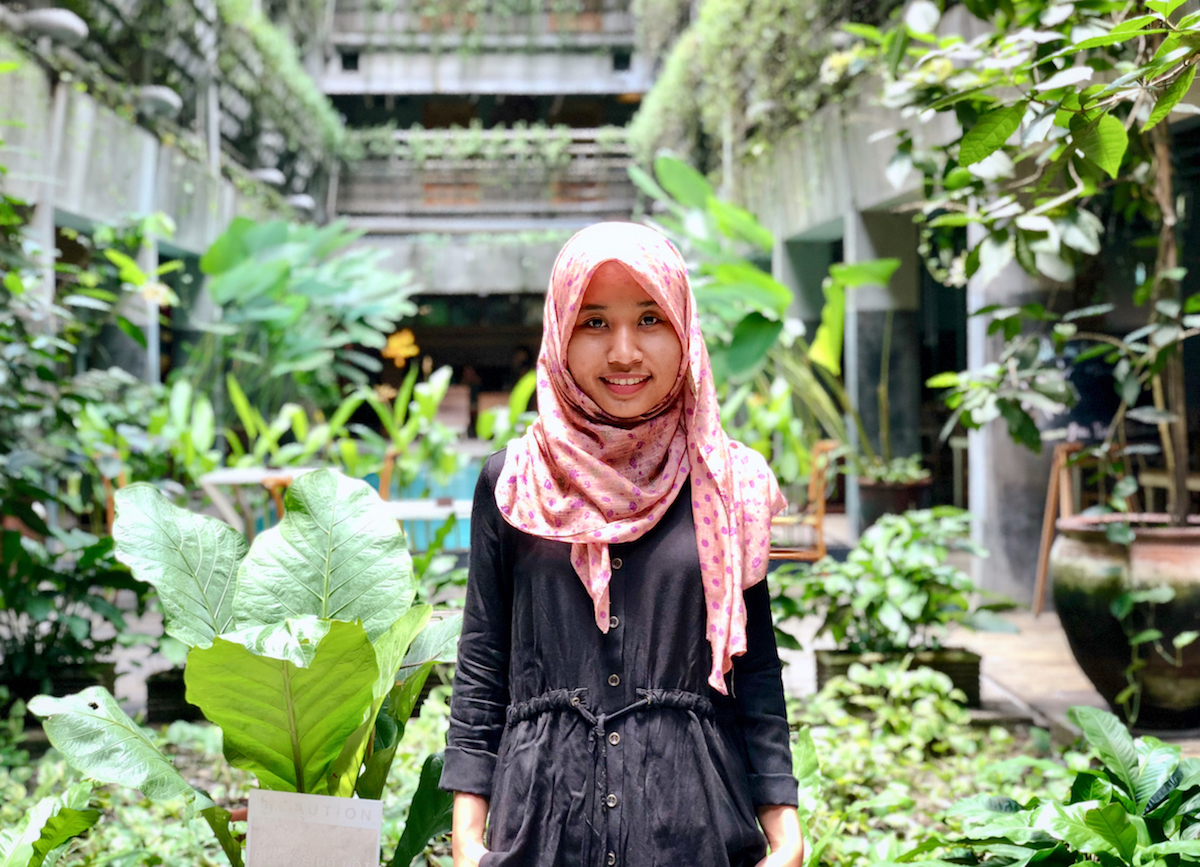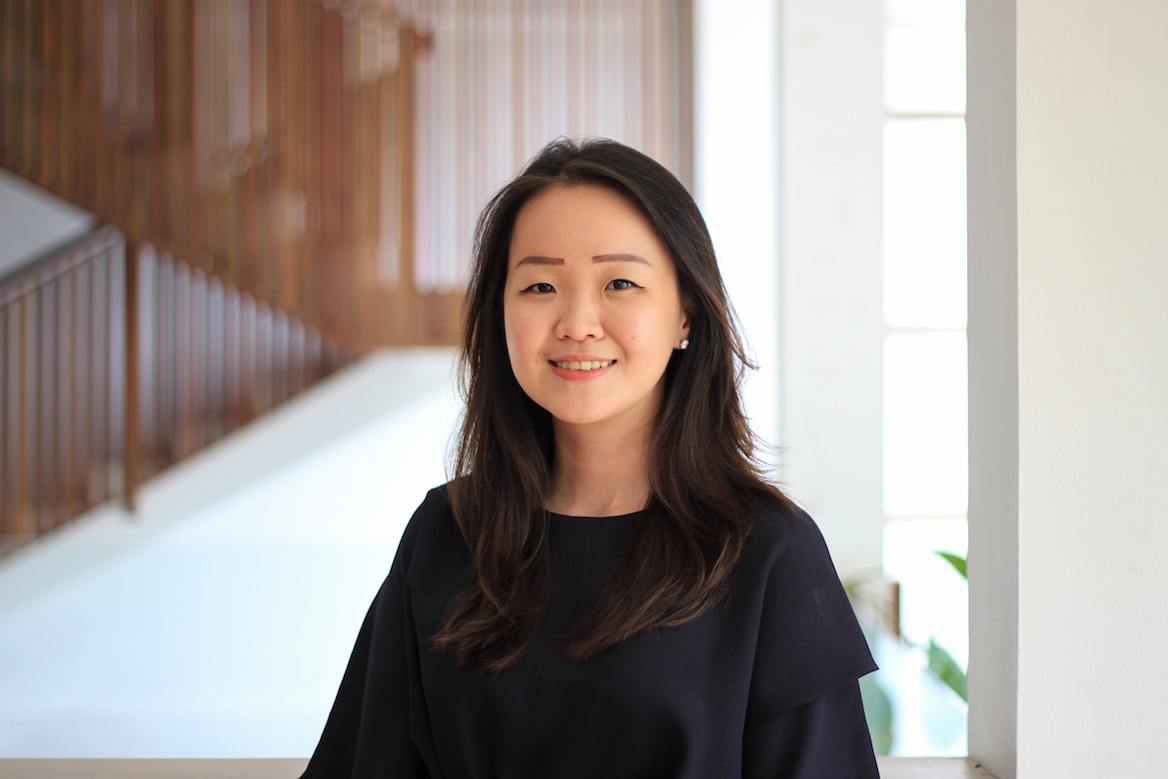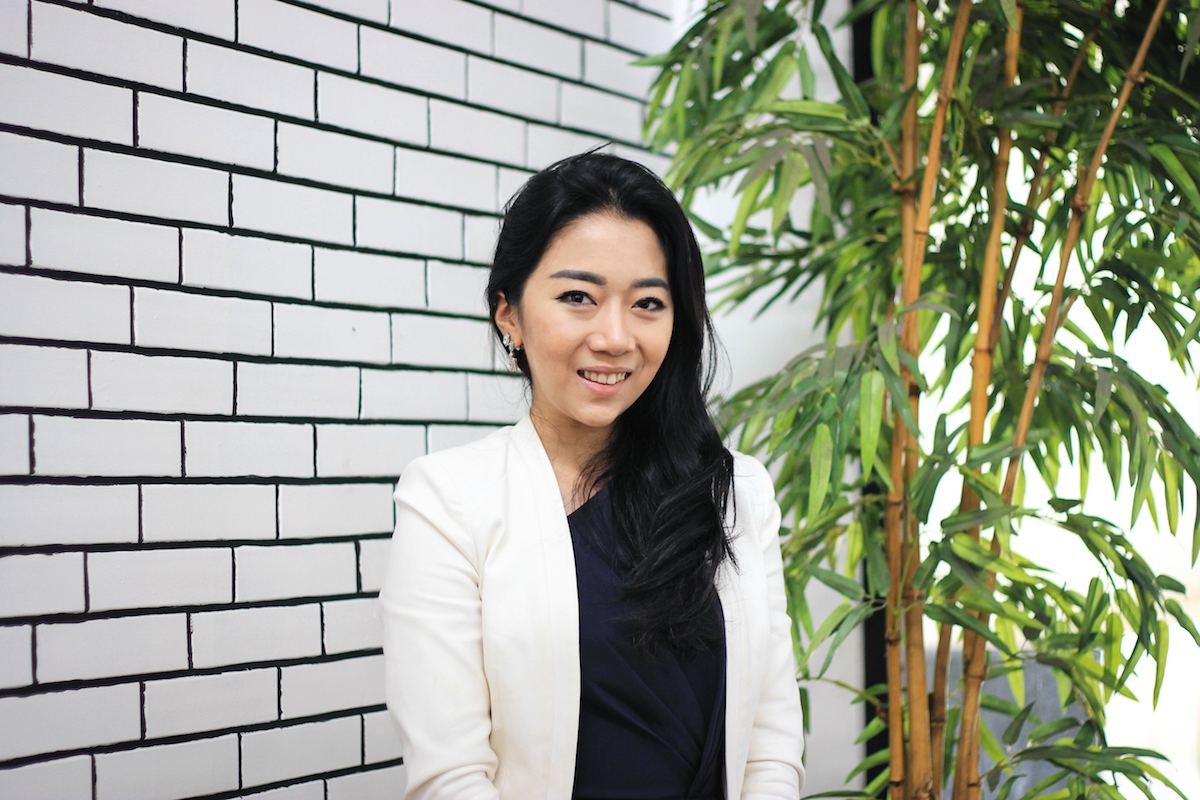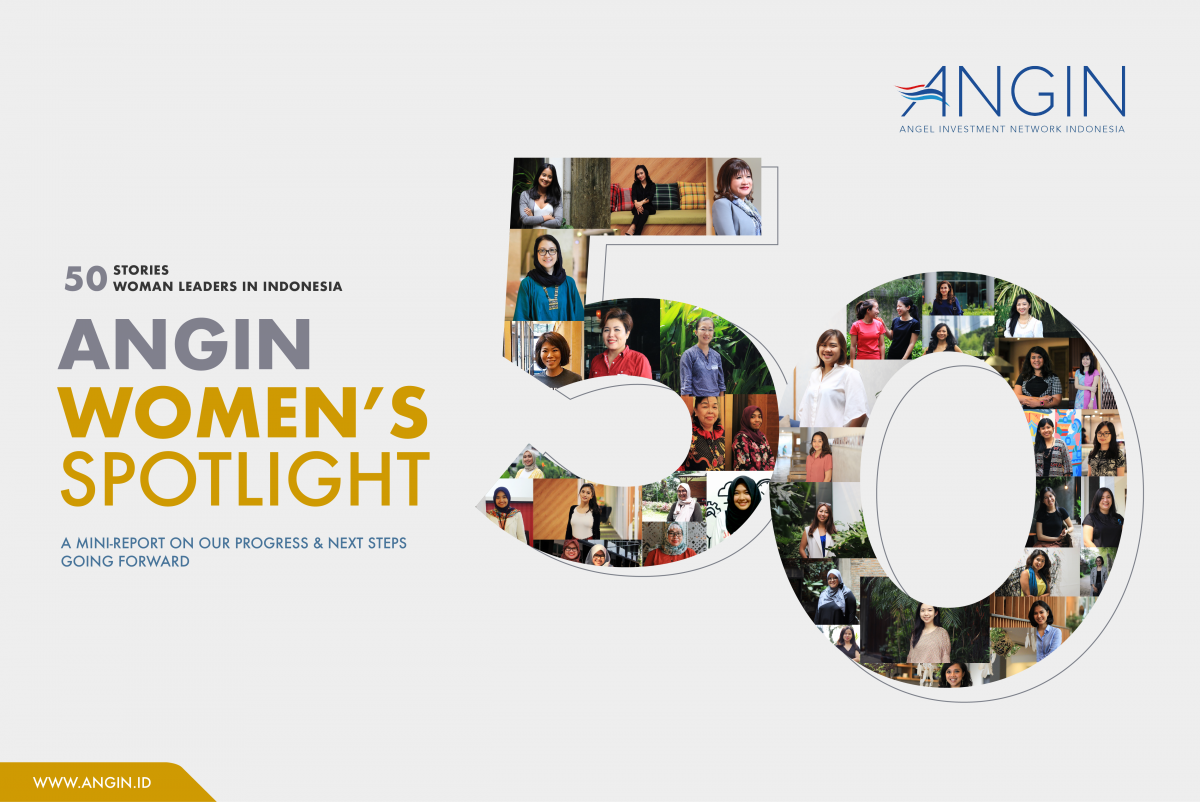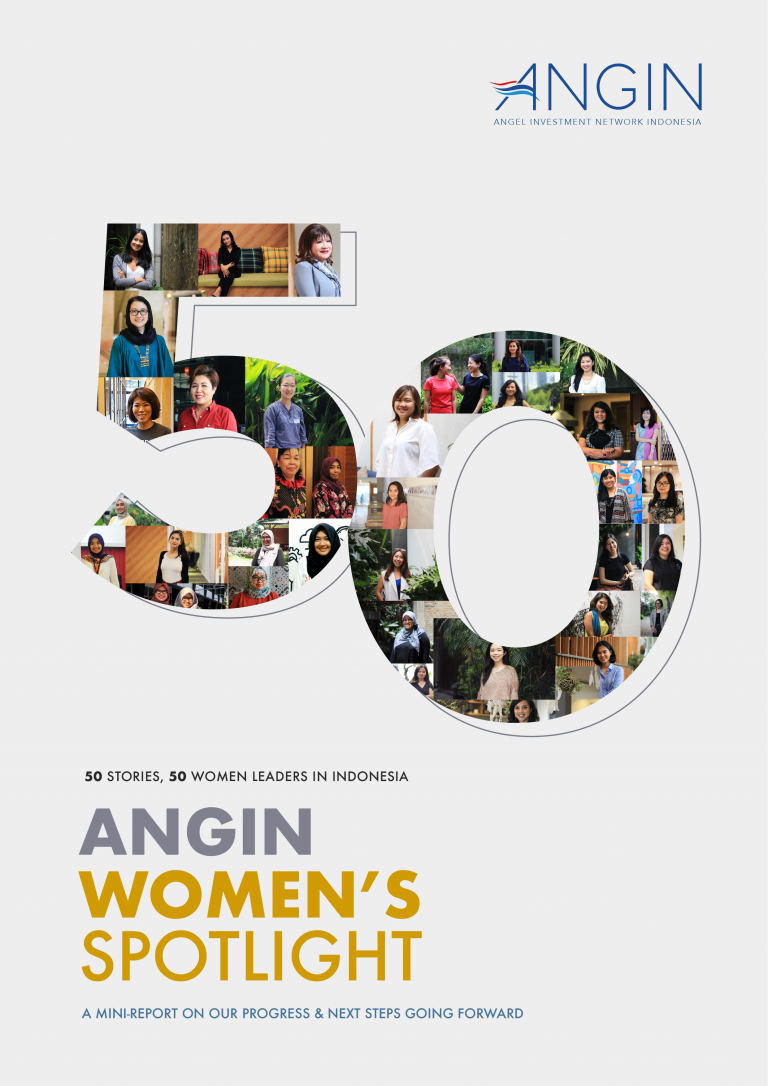Tell us about yourself.
My name is Gitta Amelia. I am the founding partner of EverHaüs, a digitally-native venture capital company established in November 2017. We are a millennial-first team and our mission is to empower a new generation of entrepreneurs. I am a Venture Capitalist because I love how venture capital is the first financing product that levels off the playing field and gives people a chance to become entrepreneurs, regardless of biology or background.
At EverHaüs we’re focused on early stage investments, which we call our core investments. For these investments, we are hands-on investors. This is different from our non-core investments – which are typically participations in larger or foreign deals – where we partake as a silent shareholder. The reason why we are focused here is because we know this market very well, given our roots in Frontier Market Research in Indonesia. We believe that with the help of our partners and our other limited partners (LPs), we’re specially suited to help our portfolio here. We also take an ecosystem approach and are big on synergies. If an investment comes to the table where we feel like it could really synergize with all of our portfolios, then we give those opportunities a little more weight.
When we first started, we decided to enter the early stage because we sensed that a fund creep was happening, where a lot of the funds are getting larger and writing larger checks for later-stage deals. The first and second wave of Indonesian funds are now series B and pretty much focus on growth equity. When we first established ourselves, our brand recognition grew quickly just over the course of one year — the reason being because there aren’t many investors left at this age. As a result, our deal flow is very strong.
My investment journey actually started four years before I founded EverHaüs. I was angel investing with my father. EverHaüs was established as an independent vehicle because I truly believe these startups need the right kind of support to succeed, independent of a corporate agenda. At the early stage, we must support the founder’s vision and mission when you invest in them.
What excites you about the Indonesian market? What investment opportunities exist?
From Frontier, we’ve built a very strong foundation in terms of our B2B relationships in this market. What’s exciting about Indonesia is that many traditional companies here understand the growing importance of the digital economy but have a hard time either targeting digital natives or transforming their company to go digital. So, investing in small teams is exciting because we have a vision of the future that involves these passionate teams.
From what I’ve seen over the past year – being very much on the ground and having heard likely over 500 startup pitches – I think there is indeed a new generation of Indonesian entrepreneurs sprouting up. The opportunity is always there; it depends where you look for it. On a macroeconomic standpoint, I do believe that we are about eight years behind China. We see that GDP per capita is exactly the same today as China’s eight years ago: that is, US$13,500. Mobile penetration is at similar levels. The same kinds of problems that we’re facing in Indonesia are the same as China’s eight years ago, such as financial inclusion.
About five months ago, I was in Hangzhou as an advisor to the Alibaba e-fellowship program. During the two weeks in the Alibaba Headquarters, everything that we believed about China and Indonesia, such as the time gap between the two markets, were confirmed for me.
Mirroring China’s generations of startups, you’ll see a lot of unicorns that will pop up in Indonesia playing a supporting role to the online economy very soon.
You mentioned the profile of the typical Indonesian entrepreneur is changing. What is that like now versus before?
So I think one thing will always stay the same: a startup founder needs to have this kind of “Wolf Spirit.” You can see it in their eyes and the way they talk about their space. That will never change, and it can come from anyone. No matter what your background is, no matter what gender you are, you need that spirit to succeed.
I think what’s changing is that entrepreneurs are becoming a lot smarter. They can spot opportunities a lot better and understand what investors want to hear. In the first wave of startups, founders are obviously going to be focused on more platform models. But nowadays, due to the strength of the platforms, you can think about things that play a more supportive role for these platforms or can grow together with existing platforms.
I believe in Indonesia, we are only at the beginning of a transformation.
How is the gender diversity of your portfolio?
Since November 2017, we’ve closed 10 deals, both core and non-core investments. Out of those deals, we have one portfolio with two female founders. I would love to have more female entrepreneurs in our portfolio but at the end of the day, it boils down to more than gender, because we look at the composition of the team and whether or not they have that wolf spirit. I believe that one of the reasons EverHaüs has to exist is to bridge this gender imbalance in the market. I don’t think we will get there by being idealistic, however. At the top of the funnel, it’s still very much male which translates down to our portfolio as well.
Female entrepreneurs tend to tackle female problems, and female problems are just as real as any other problem. We’re 50 percent of the population, and that’s a sizable market. Not to mention that consumer spending is still very much held by females. It’s usually larger than male consumer spending, and that’s true for most parts of the world. So I definitely want to see more female entrepreneurs. I think female entrepreneurs can be rest assured that when they are coming to EverHaüs, we do our best to understand what they’re trying to achieve.
Why do you think women are struggling so hard to find fundraising?
I don’t think it’s a matter of, “Is she competent?” It’s more like, a voice in the back of your head saying, “she has other commitments,” and one of the things that all VCs champion is the fact that your startup “has to be your life and breath.” VCs don’t like part-time founders or founders with other commitments.
But I think that besides work, we are all humans and as humans, we also have other priorities besides contributing to the economy. There is a bias towards thinking that males will prioritize their work more than females. This kind of stigma trickles down towards a lot of the seed-level investors as well, who say, “If I invest in this particular startup founder who happens to be a female, I’m not quite sure if she can raise series A or series B capital.” As an investor, you don’t want your startup to run dry.
The second issue is that I think a lot of females are tackling very female problems. A lot of them I see are going into things like fashion retail or maternity, which may be difficult for them to explain to a male VC. A male VC might not be able to understand the world that they’re trying to put forward. And it comes with all of these assumptions as well. So a lack of female representation in a fund’s investment committee is a another issue on its own.
Speaking of male and female VCs, I think you’re one of the only people I know who is female and in a high leadership position in a VC, and the only female co-founder and partner of a fund. Why do you think there aren’t as many female VCs in leadership roles, and how do we get more of them into these roles?
I think that women will face challenges regardless of industry or position. It’s true that the climate in finance is sexist and I get a lot of challenging questions. I think you just have to have really thick skin at the end of the day and not worry so much about what others will think of you. Instead, define yourself by your principles and your values.
Be that principled person. I have a couple of principles that I hold on to such as add value wherever you go, be humble, and respect everyone no matter what. Here at Everhaüs, we start off team meetings by reciting our values to remind ourselves that every interaction with a colleague, investor, or founder has to be value-adding. And that’s the kind of person that you start defining yourself as — not on the basis of your gender. When you hold onto those things as opposed to your gender, then I think you can really go further. It’s a lot about changing the mindset. And while it may be difficult to change everyone’s mindset, you could at least start by changing your own.
While there have been challenges as a female leader in the VC space, have there been any benefits as well?
Plenty. First of all as a female VC, you are in a unique position to make a difference and draw like-minded females towards the space.
Secondly, I think that women may have a greater tendency to develop more empathy. Venture capital is a very people-centric business. I studied finance but being in a VC is only 20 percent finance. 80 percent really is about connecting with people, understanding them and their motivations. For a lot of our core startups – we want to be their first call that they make if they run into a problem. And I think that’s one of the things that really makes me happy when I think about it, because it just shows that the relationships that we create with our startups go far more than just providing capital.
Has anyone ever imposed some kind of glass ceiling onto your ambitions?
There are always glass ceilings out there, but they’re glass. You can always break them.
The ones that are not glass are the ones that you create inside your head.
What’s the most rewarding thing about your line of work and your career? Has there ever been one moment in your career that has affirmed and validated everything?
There’s so many people in this world, and having the opportunity to talk to so many people and hear such diverse viewpoints is immensely rewarding. Such as meeting Jack Ma. (laughs)
Being in leadership position means that naturally, people ask what is the best thing about leading your company. I think startup founders and other kinds of leaders can basically attest to this when I say that the best thing is seeing people grow under your leadership. I have a very small team, but I think I’m so blessed that they’ve stuck around all this time. You also see good people become better; that’s what a good company culture does to you.
So I think that’s hands down the most rewarding thing about being in a leadership position. It’s looking back and seeing the impact you’ve had on the people inside of your own company.
Do you have any role models?
One of my role models is my mother. She was an entrepreneur and self-proclaimed soft-skill expert. I didn’t climb up a corporate ladder to get to EverHaüs. So that means being in a leadership position was essentially like being shoved off a cliff. Some hand larger than life pushed me and now I must fly. I get regular breakfast with my mother where I ask for her advice. Having been a management consultant for many companies and large corporations, she tells me stories of great corporate practices. I learned how to build Standard Operational Procedures from her. So even though we’re a very small company and still a very small team, our SOP is what sets us apart. I put a lot of time into investing into our defensibility to build a culture and minimize bias. Even though we’re small right now, there might be a time where we’re not going to be small anymore. So we need to be able to be ready for that. And I think investing in that means investing in the future. My mother has played a huge role in giving me this thinking.
Where do you want to be 10 years down the line?
I always say that I want to be a Limited Partner in my own fund. That’s the goal 10 years from now. My hope is that EverHaüs becomes the trusted partner for any new team out there and can continue to real add value to our economy. I think only God knows where it will be 10 years from now. But as I mentioned to you before, I think there is no real ceiling to our growth. And so we’re going to keep on moving forward.
Do you have any advice for other young women who are looking to become fund managers or join the investment side of the startup world?
It’s going to be a place dominated with men, so be sure to strap on some very, very high heels. And I think the other thing is, don’t think too much about the challenges. If you do that, you’re only going to hold yourself back.
At the same time, be very strategic about it in terms of knowing your cards. Try to know everybody else’s cards, too. Every step that you make needs to have an intentionality that you must be able to defend. Because you’re going to need that kind of compass. There’s going to be many distractions people telling you that you cannot do something. So as long as in your mind you are clear with your goal, you can make sound judgements and execute accordingly.
